-

Quality Aromatherapy Neroli Essential Oil Steam Distilled Neroli Oil
Benefits
Minimizes Age Spots
Our fresh Neroli essential oil is known to reduce age spots, blemishes, etc. from your face to make you look beautiful and young. The manufacturers of anti-aging applications can utilize these properties of Neroli essential oil in their products.
Tightens Skin
Our best Neroli essential oil tightens skin and evens skin tone. It also makes your skin smooth and is used while manufacturing face mists and skin toner applications. Your face looks vibrant and refreshed after massaging it with this oil.
Hairstyling Products
Neroli essential oil is used in hair styling products due to its ability to revitalize dull and listless-looking hair. It also boosts hair growth and can be used in both hair care and hairstyling applications without any side effects.
Uses
Hairstyling Products
Neroli essential oil is used in hair styling products due to its ability to revitalize dull and listless-looking hair. It also boosts hair growth and can be used in both hair care and hairstyling applications without any side effects.
Reduces Wrinkles
If there are wrinkles or fine lines on your face then this organic Neroli essential oil can come to your rescue. You just need to dilute it and apply it to your face to obtain wrinkle-free and flawless skin. It also gives a visible glow to your face on regular usage.
Effective Eye Care
Natural Neroli Essential Oil is one of the best ingredients when it comes to effective eye care. It not only moisturizes the skin around your eyes to reduce the effects of aging but also provides relief from issues like crow’s feet.
-

Best price organic black pepper oil black pepper essential oil
Black Pepper Essential Oil Benefits
Activating, stimulating and energizing. Cleanses while it grounds and harmonizes. Soothing for your entire being.
Using Black Pepper Oil
Floral Spice Blend
3 drops Black Pepper Oil
3 drops Nutmeg Oil
3 drops Geranium Oil
3 drops Jasmine OilHot Peppery Love Potion
4 drops Black Pepper Oil
3 drops Patchouli Oil
2 drops Sandalwood Oil
2 drops Vetiver Oil
1 drop Cedarwood OilBlends Well With
Basil, Cedarwood, Chamomile, Frankincense, Geranium, Jasmine, Lavender, Neroli, Nutmeg, Oregano, Patchouli, Rosemary, Sandalwood, Spruce, Vetiver, Sweet Marjoram, Vetiver, Ylang Ylang
Precautions:
This oil can cause skin sensitization if oxidized. Never use essential oils undiluted, in eyes or mucus membranes. Do not take internally unless working with a qualified healthcare practitioner. Keep away from children and pets. Before using perform a small patch test on your inner forearm or back.
-
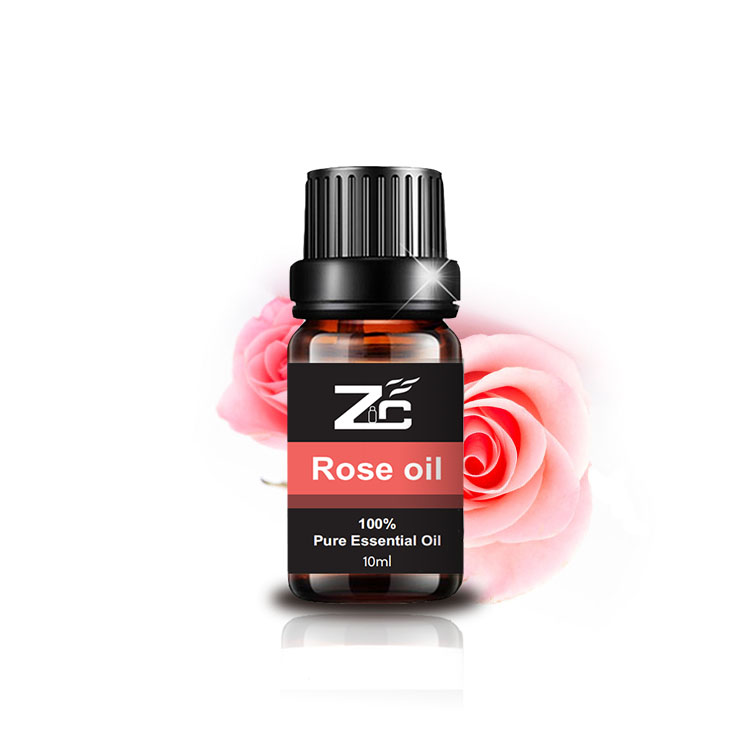
100% Pure and Natural Rose Essential for Skincare and Aroma Use
Rose Essential Oil (Rosa x damascena) is also commonly known as Rose Otto, Damask Rose, and Rose of Castile. The oil has a strong floral, sweet aroma presenting a middle-base fragrance note. Rose Essential Oil is part of the Rocky Mountain Oils Mood and Skin Care collections. The strong-smelling oil is also very concentrated, so a little goes a long way.
Diffuse the oil to uplift your spirits and reduce feelings of loneliness and grief. The blooming floral fragrance brings about feelings of love, care, and comfort while providing harmony and balance to the body and mind. Apply topically in daily skin care routines. Rose Essential Oil is good for dry, sensitive, or mature skin types.
Benefits
Rose oil’s emoilient properties makes it a great light moisturizer, as it is very similar to the natural oil your skin produces. The sugars in the petals from the plant make the oil soothing.
Light but sweet, rose oil is amazing for aromatherapy. Studies show rose oil is an effect antidepressant Rose oil has been shown to be an effective antidepressant.
Rose oil is great as an astringent that won’t dry the skin. It smooths the skin and tightens your pores, leaving your complexion clear and bright.
Because it acts as an anti-anxiety agent, rose essential oil can greatly help men with sexual dysfunction related to performance anxiety and stress. It may also help to balance sex hormones, which can contribute to increased sex drive.
There are many qualities of rose essential oil that make it a great natural remedy for the skin. The antimicrobial and aromatherapy benefits alone are great reasons to put a few drops in your DIY lotions and creams.
Uses
Topically: It has many skin benefits when used topically and it can be used undiluted. However, it’s always a good idea to dilute essential oils with a carrier oil like coconut or jojoba in a 1:1 ratio before applying it topically. After diluting the oil, perform a small patch test first before using the oil on larger areas. Once you know you that you don’t have a negative reaction then you can add a few drops of essential oil to a face serum, warm bath, lotion or body wash. If you’re using rose absolute, there is no need for dilution because it is already diluted.
Depression and anxiety: Combine rose oil with lavender oil and diffuse it, or apply 1 to 2 drops topically to your wrists and the back of your neck.
Acne: If you suffer from acne, try dabbing one drop of pure rose essential oil on blemishes three times a day. Make sure you use a sterile cotton swab; if the antimicrobial power is too much for you, dilute it slightly with some coconut oil.
Libido: Diffuse it, or apply 2 to 3 drops topically to your neck and chest. Combine rose oil with a carrier oil like jojoba, coconut or olive for a libido-boosting therapeutic massage.
Aromatically: You can diffuse the oil in your home using a diffuser or inhale the oil directly. To make a natural room freshener, put a few drops of oil along with water into a spritz bottle.
-
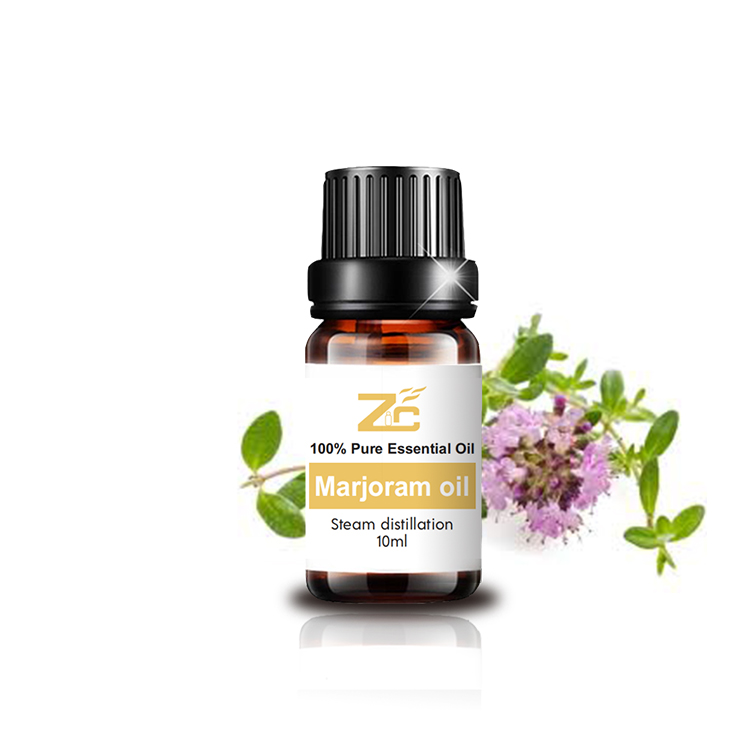
wholesale 100% pure natural sweet bulk marjoram essential oil
Marjoram Oil Benefits
Relaxes and soothes while fortifying inner strength. Great for nervous tension and feelings of being “stuck in the muck”. Encourages serenity while easing occasional tension and stress.
Aromatherapy Uses
Bath & Shower
Add 5-10 drops to hot bath water, or sprinkle into shower steam before getting in for an at-home spa experience.
Massage
8-10 drops of essential oil per 1 ounce of carrier oil. Apply a small amount directly to areas of concern, such as muscles, skin, or joints. Work the oil gently into the skin until it is fully absorbed.
Inhalation
Inhale the aromatic vapors directly from the bottle, or place a few drops in a burner or diffuser to fill a room with its scent.
DIY Projects
This oil can be used in your homemade DIY projects, such as in candles, soaps and other body care products!
Blends Well With
Basil, Bergamot, Black Pepper, Cedarwood, Chamomile, Cinnamon Leaf, Cypress, Eucalyptus, Eucalyptus Lemon, Fennel, Juniper, Lavender, Lemon, Orange, Patchouli, Peppermint, Pine, Rosemary, Tea Tree, Thyme
Precautions
This oil has no known precautions. Never use essential oils undiluted, in eyes or mucus membranes. Do not take internally unless working with a qualified and expert practitioner. Keep away from children.
Before using topically, perform a small patch test on your inner forearm or back by applying a small quantity of diluted essential oil and apply a bandage. Wash the area if you experience any irritation. If no irritation occurs after 48 hours it is safe to use on your skin.
-

Private Label Natural Pure Bergamot Essential Oil Skin And Body Care
Blending and Uses
Uplifting bergamot mint is an excellent oil for perfumes and colognes. It blends very well with lavender oils as they tend to have complimentary constituent balances. Use with citrus oils such as sweet orange or lime, or woods-like oils of cedar and pine.
For a calming experience in massage oils and diffusers blend this oil with clary sage, sandalwood, and ylang ylang. Bergamot mint is also attributed to healthy sensuality and closeness, and can be combined with related oils like geranium or palmarosa.
Bergamot mint can be used as a single aroma, or with any of these blends in your favorite cosmetics such as lotion, deodorant, shampoo, or lip balm. Add to carrier oils for a gentle abdominal massage blend for occasional digestive upset.
Using Bergamot Oil
Sweet Dreams Blend
4 drops Chamomile Oil
2 drops Clary Sage Oil
2 drops Bergamot Oil
2 drops Jasmine Oil
Harmony Blend2 drops Bergamot Oil
4 drops Lavender Oil
4 drops Geranium Oil
2 drops Rosewood OilPrecautions:
Never use essential oils undiluted, in eyes or mucus membranes. Do not take internally unless working with a qualified healthcare practitioner. Keep away from children and pets. Before using perform a small patch test on your inner forearm or back.
-
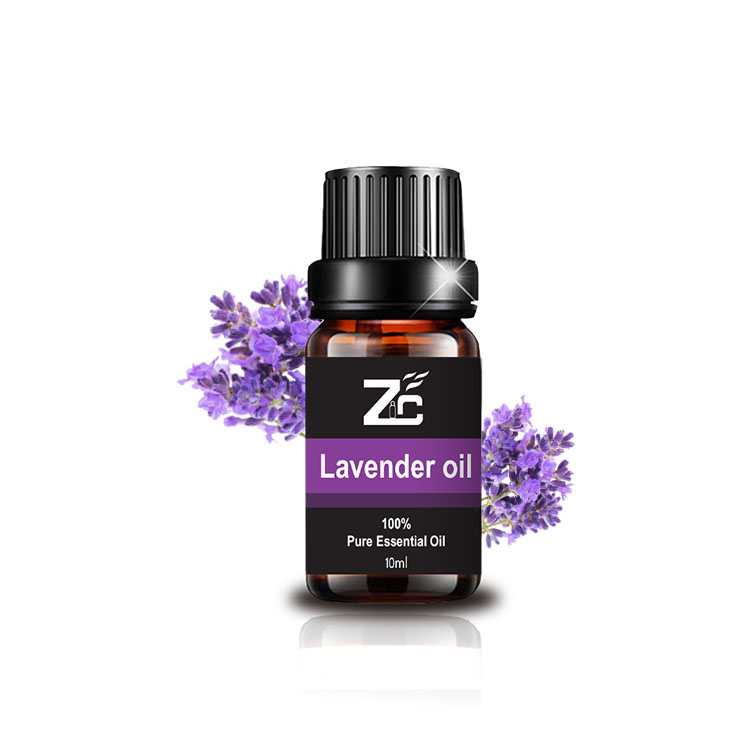
Factory Supply Lavender Essential Oil for Massage Aromatherapy
Organic lavender essential oil is a middle note steam distilled from the flowers of Lavandula angustifolia. One of our most popular essential oils, lavender oil has an unmistakable sweet, floral and herbal aroma found in body care and perfumes. The name “lavender” is derived from the Latin lavare, meaning, “to wash”. Greeks and Romans perfumed their bathwater with lavender, burned lavender incense to appease their wrathful gods, and believed the scent of lavender to be soothing to untamed lions and tigers. Blends well with bergamot, peppermint, mandarin, vetiver, or tea tree.
Benefits
In recent years, lavender oil has been put on a pedestal for its unique ability to protect against neurological damage. Traditionally, lavender has been used to treat neurological issues like migraines, stress, anxiety and depression, so it’s exciting to see that the research is finally catching up to history.
Widely known for its antimicrobial properties, for centuries lavender oil has been used to fight various infections and combat bacterial and fungal disorders.
Most likely due to its antimicrobial and antioxidant characteristics, Lavandula mixed with a carrier oil (like coconut, jojoba or grapeseed oil) has profound benefits on your skin. Using lavender oil topically can help improve a number of skin conditions, from canker sores to allergic reactions, acne and age spots.
If you are one of the millions of people struggling with tension or migraine headaches, lavender oil may just be the natural remedy you’ve been looking for. It’s one of the best essential oils for headaches because it induces relaxation and relieves tension. It works as a sedative, anti-anxiety, anticonvulsant and calming agent.
Because of Lavandula’s sedative and calming properties, it works to improve sleep and treat insomnia. A 2020 study indicates that Lavandula is an effective and reliable approach to enhance sleep quality in patients with life-limiting illnesses.
Uses
Most of the properties of Lavender revolve around the balancing and normalising of body functions and emotions. Lavender can be used to great effect in massage and bath oils for muscular aches and pains. Traditionally Lavender has been used to aid a good nights sleep.
Lavender Essential Oil is valuable in treating colds and flu. With the natural antiseptic properties it helps combat the cause, and the the camphorous and herbaceous undertones help relieve many of the symptoms. When used as part of inhalation, it is very beneficial.
For headaches Lavender Essential Oil can be put in a cold compress with a couple of drops rubbed into the temples… soothing and relieving.
Lavender helps relieve the itch which is associated with bites and applying neat oil to bites also helps relieve the stinging sensation. Lavender will help soothe and heal burns, but always remember for serious burns to consult a doctor, Lavender isn’t a replacement for medical treatment in the case of a severe burn.
Blends Well With
Bergamot, black pepper, cedarwood, chamomile, clary sage, clove, cypress, eucalyptus, geranium, grapefruit, juniper, lemon, lemongrass, mandarin, marjoram, oakmoss, palmarosa, patchouli, peppermint, pine, rose, rosemary, tea tree, thyme, and vetiver.
-
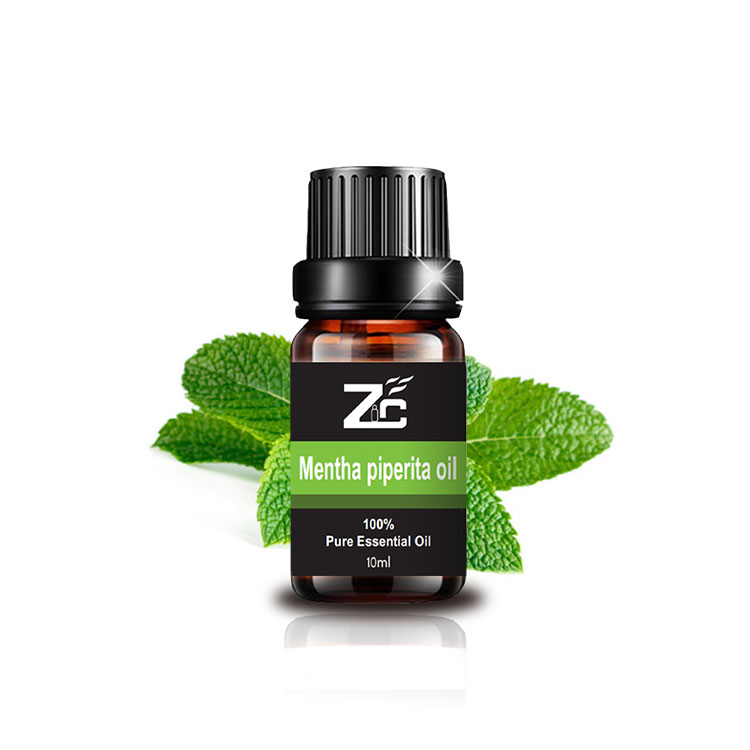
Pure Natural Mentha Piperita Essential Oil for Aromatherapy
Mentha piperita, commonly known as Peppermint, belongs to the family Labiatae. The perennial plant grows to a height of 3 feet. It has serrated leaves that appear hairy. Flowers are pinkish in color, arranged in a conical shape. The best quality oil is extracted through the steam distillation process by peppermint essential oil (Mentha Piperita) manufacturers. It is a thin pale yellow oil that emits an intensely minty aroma. It can be used to maintain the hair, skin, and other body wellness. During the ancient time, the oil was considered one of the most versatile oils that resembled the aroma of Lavender. Due to its countless benefits, the oil was used for dermal and oral use that supports a fine body and mind.
Benefits
The main chemical constituents of Peppermint essential oil are Menthol, Menthone, and 1,8-Cineole, Menthyl acetate and Isovalerate, Pinene, Limonene and other constituents. The most active of these components are Menthol and Menthone. Menthol is known to be analgesic and is thus beneficial for reducing pain such as headaches, muscle aches, and inflammation. Menthone is known to be analgesic as well, but it is also believed to show antiseptic activity. Its invigorating properties lend the oil its energizing effects.
Used medicinally, Peppermint essential oil has been found to eliminate harmful bacteria, relieve muscle spasms and flatulence, disinfect and soothe inflamed skin, and to release muscle tension when used in a massage. When diluted with a carrier oil and rubbed into the feet, it can work as a natural effective fever reducer.
Used cosmetically or topically in general, Peppermint acts as an astringent that closes pores and tightens the skin. It’s cooling and warming sensations make it an effective anesthetic that leaves the skin numb to pain and calms redness and inflammation. It has traditionally been used as a cooling chest rub to relieve congestion, and when diluted with a carrier oil such as coconut, it can promote the safe and healthy renewal of skin, thus offering relief from skin irritations such as sunburn. In shampoos, it can stimulate the scalp while also removing dandruff.
When used in aromatherapy, Peppermint essential oil’s expectorant properties clear the nasal passageway to promote the relief of congestion and to encourage easy breathing. It is believed to stimulate circulation, reduce feelings of nervous tension, soothe feelings of irritability, boost energy, balance hormones, and enhance mental focus. The scent of this analgesic oil is believed to help relieve headaches, and its stomachic properties are known to help suppress the appetite and promote the feeling of being full. When diluted and inhaled or when rubbed in small amounts behind the ear, this digestive oil can reduce the feeling of nausea.
Due to its anti-microbial properties, Peppermint oil can also be used as a cleaning solvent to sanitize and deodorize the environment, leaving behind the trail of a fresh, cheerful scent. Not only will it disinfect surfaces, but it will also eliminate bugs in the home and function as an effective insect repellant.
Uses
In a diffuser, Peppermint oil can help to enhance relaxation, concentration, memory, energy and wakefulness.
When used topically in homemade moisturizers, the cooling and calming effects of Peppermint essential oil can relieve sore muscles. Historically, it has been used to reduce itchiness and the discomfort of inflammation, headaches, and joint pains. It can also be used to relieve the sting of sunburns.
In a diluted massage blend or bath, Peppermint essential oil is known to relieve back pain, mental fatigue, and coughs. It boosts circulation, releases the feeling of having tired feet, relieves muscular pain, cramps, and spasms, and soothes inflamed, itchy skin among other conditions.
Blend with with
Peppermint can be used with many essential oil. Our favourite in a lot of blends is Lavender; two oils which would seem to contradict one another but instead work in absolutely synergy. As well as this Peppermint blends well with Benzoin, Cedarwood, Cypress, Mandarin, Marjoram, Niouli, Rosemary and Pine.
-
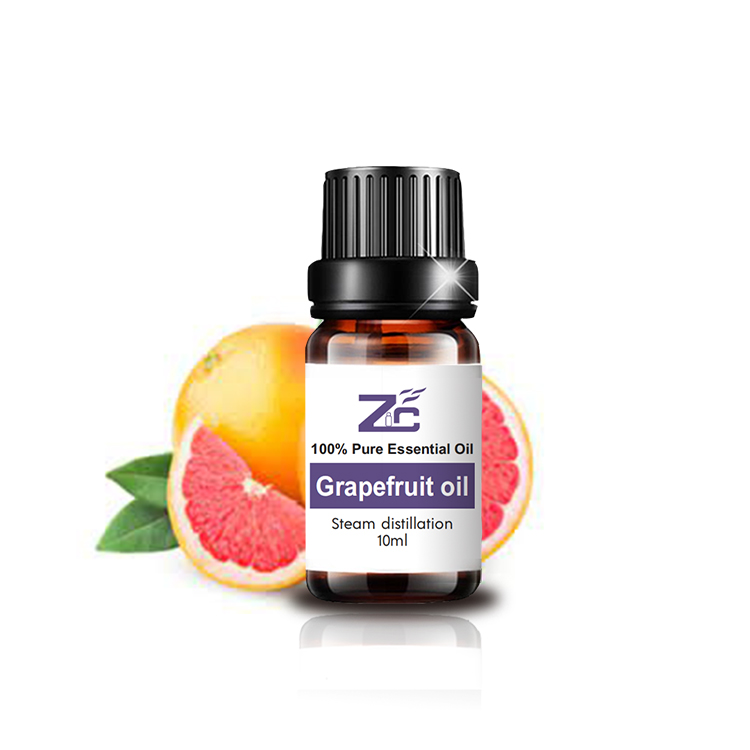
Skin Care Fragrance 100% Pure Grapefruit Essential Oil For Candle
Grapefruit Essential Oil Benefits
Stimulates and refreshes the senses. Euphoria-inducing and energizing. Encouraging as it strengthens resolve. Eases occasional tension and pressure.
Blends Well With
Bergamot, black pepper, cardamom, clary sage, clove, cypress, eucalyptus, fennel, frankincense, geranium, ginger, juniper, lavender, lemon, mandarin, neroli, palmarosa, patchouli, peppermint, rosemary, thyme, and ylang ylang
Aromatherapy Uses
Bath & Shower
Add 5-10 drops to hot bath water, or sprinkle into shower steam before getting in for an at-home spa experience.
Massage
8-10 drops of essential oil per 1 ounce of carrier oil. Apply a small amount directly to areas of concern, such as muscles, skin or joints. Work the oil gently into the skin until it is fully absorbed.
Inhalation
Inhale the aromatic vapors directly from the bottle, or place a few drops in a burner or diffuser to fill a room with its scent.
DIY Projects
This oil can be used in your homemade DIY projects, such as in candles, soaps, and body care products!
Precautions
This oil is phototoxic and can cause skin sensitization if oxidized. Never use essential oils undiluted, in eyes or mucus membranes. Do not take internally unless working with a qualified and expert practitioner. Keep away from children.
Before using topically, perform a small patch test on your inner forearm or back by applying a small quantity of diluted essential oil and apply a bandage. Wash the area if you experience any irritation. If no irritation occurs after 48 hours it is safe to use on your skin.
-

Private Label 100% Pure Natural Neroli Body and Hair Essential Oil
Common Applications:
Neroli Essential Oil is believed to have uplifting properties. Aromatherapists have long used it to calm anger and stress, while it has been used in the skin care industry for acne, oily skin, and as a deodorizing agent.
Blends Well With
Benzoin, chamomile, clary sage, coriander, frankincense, geranium, ginger, grapefruit, jasmine, juniper, lavender, lemon, mandarin, myrrh, orange, palmarosa, petitgrain, rose, sandalwood, and ylang ylang
Precautions
This oil has no known precautions. Never use essential oils undiluted, in eyes or mucus membranes. Do not take internally unless working with a qualified and expert practitioner. Keep away from children.
Before using topically, perform a small patch test on your inner forearm or back by applying a small quantity of diluted essential oil and apply a bandage. Wash the area if you experience any irritation. If no irritation occurs after 48 hours it is safe to use on your skin.
-
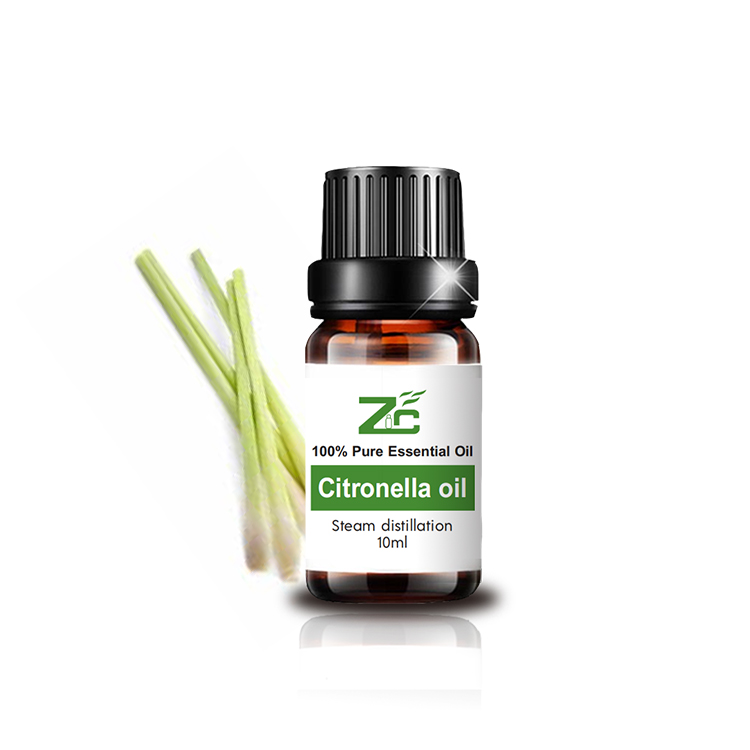
100% Pure Citronella essential oil Natural Organic perfume massage oil
Citronella Essential Oil Benefits
Invigorating, uplifting and clarifying. Balances and stimulates the senses.
Aromatherapy Uses
Bath & Shower
Add 5-10 drops to hot bath water, or sprinkle into shower steam before getting in for an at-home spa experience.
Massage
8-10 drops of essential oil per 1 ounce of carrier oil. Apply a small amount directly to areas of concern, such as muscles, skin or joints. Work the oil gently into the skin until it is fully absorbed.
Inhalation
Inhale the aromatic vapors directly from the bottle, or place a few drops in a burner or diffuser to fill a room with its scent.
DIY Projects
This oil can be used in your homemade DIY projects, such as in candles, soaps, and body care products!
Blends Well With
Bergamot, Citrus Oils, Cedarwood, Geranium, Pine, Sandalwood
Cautions:
Citronella may irritate sensitive skin. It may be sensitizing to those with hay fever. Avoid use during pregnancy.
-
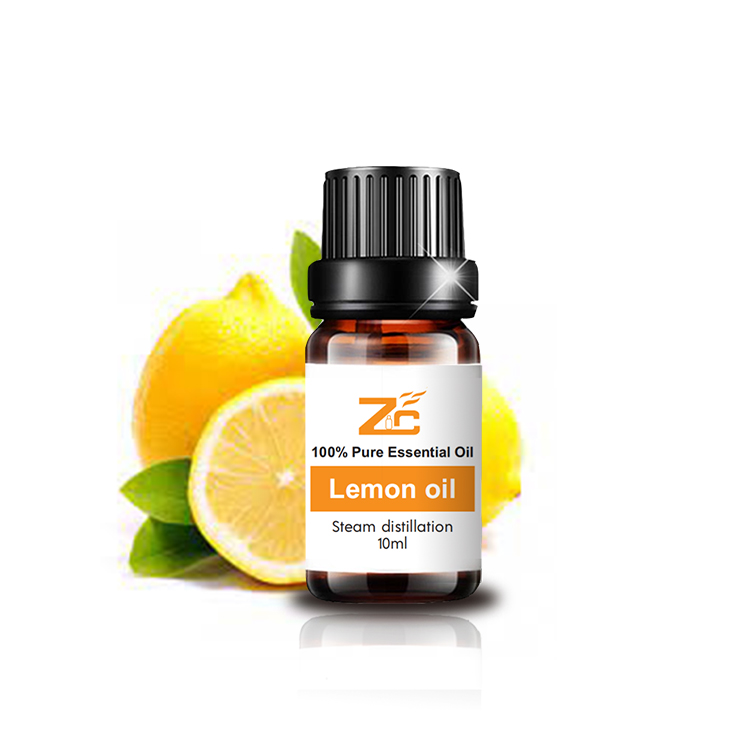
Nature Organic Skin Care Therapeutic Grade Pure Lemon Essential Oil
BENEFITS
Reduces inflammation
Rich in powerful anti-oxidants and anti-inflammatory properties, lemon oil helps soothe skin while reducing puffiness and swelling to help restore skin’s natural glow.
Balances oily skin
Lemon has strong astringent properties that lessen the production of sebum and dissolve impurities in T-zone.
Clarifies and brightens skin tone
Its citric properties help invigorate tired-looking skin while brightening and repairing discolored or hyper-pigmented skin.
HOW TO USE
Apply 2-10 drops to moist, clean face and skin and massage gently. Use during the day before sunscreen and/or overnight; no need to wash off.
Use daily or at least 3-4 times a week to maintain skin balance.
-
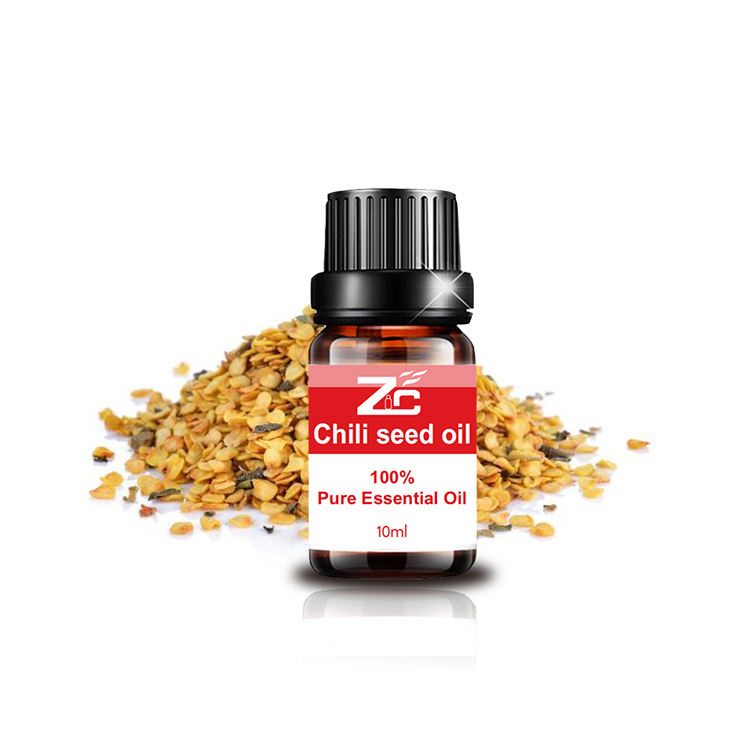
Chili Seed Oil Food Grade for Cook and Therapeutic Grade for Health
Benefits
(1) An effective pain-relieving agent, capsaicin in chili seed oil is a powerful analgesic for people who suffer from muscle aches and stiff joints due to rheumatism and arthritis.
(2) Aside from relieving muscle aches, chili seed oil can also ease stomach discomfort by encouraging better blood flow to the area, numbing it from pain, and encouraging digestion.
(3) Because of capsaicin, chili oil can encourage hair growth by encouraging better blood circulation to the scalp while tightening and thereby strengthening hair follicles.
Uses
Promotes Hair Growth
Mix 2-3 drops of the chili seed oil with equal amounts of a carrier oil (such as coconut or jojoba oil) to ensure proper dilution of the oil before topical application onto the scalp. Gently massage the mixture onto your scalp for about 3-5 minutes and do this about 2-3 times weekly to stimulate hair growth.
Offers Pain Relief
You can dilute chili seed oil with a carrier oil and proceed to massage directly onto the affected areas for some pain relief and numbing effect. Alternatively, you can make a homemade pain relief cream by combining a few drops of chili seed oil with a cream base, like beeswax.
Helps to Heal Wounds and Insect Bites
Dilute the chili seed oil with a carrier oil in a 1:1 ratio and gently apply it onto the affected areas. However, be careful to avoid open wounds.

